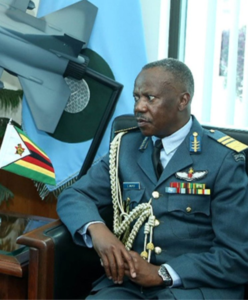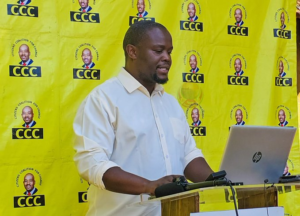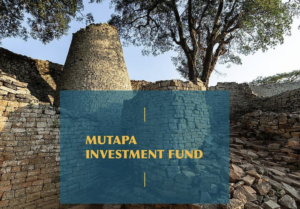THE DOWNFALL OF A POLITICAL CHARLATAN: INSIDE THE CCC’S CHAOTIC UNRAVELING

In an astonishing turn of events within Zimbabwe’s opposition Citizens Coalition for Change (CCC), the self-imposed secretary-general Sengezo Tshabangu has been suspended by the very interim steering committee that appointed him. This committee, under the leadership of former Entumbane-Njube MP Dingilizwe Tshuma, has inadvertently marked the end of a controversial figure whose primary aim appeared to disrupt the opposition for personal gain, allegedly aiding the ruling Zanu PF party.
Originally, the committee’s intention was not to dismantle the CCC but to address the contentious issue of candidate imposition during the previous year’s general elections. However, Tshabangu, exploiting the committee’s objectives, embarked on a path of self-aggrandizement. According to his allies, he failed to present a convincing political agenda or gain public support, instead focusing on the arbitrary recall of MPs, senators, councillors, and mayors. This move was a direct response to internal disputes, including the imposition of candidates and exclusion within the party.
Tshabangu’s actions, however, were not without backing. He received support from the highest levels of government—executive, parliament, and judiciary—aided by state security agents and members of Zanu PF. The judiciary, in particular, faced criticism for partisan judgments that seemingly endorsed Tshabangu’s agenda, further tarnishing its credibility and integrity.
The committee overseeing these controversial recalls included notable figures such as Dingilizwe Tshuma as chair, Mhlanga as the deputy chair, and members like Khaliphani Phugeni and Sikhululekile Moyo. Mhlanga’s recent announcement of Tshabangu’s suspension and the clarification that Tshuma, not Ncube, leads the CCC underscores the deep divisions within the party.
The CCC has been in turmoil since Nelson Chamisa’s departure, with several members, including veterans like Welshman Ncube and newcomers such as Jameson Timba and Promise Mkhwananzi, vying for leadership. The committee has outright rejected Ncube’s claim to leadership, highlighting the party’s descent into chaos and the struggle for control over the significant US$2 million in state funding promised to the CCC under the Political Parties Finances Act.
This fracturing within the CCC raises significant concerns about the future of opposition politics in Zimbabwe. The suspension of Tshabangu, while a critical step in addressing internal discord, also shines a light on the broader issues of leadership, integrity, and the party’s direction. As the CCC grapples with these challenges, the question remains: can it overcome its current state of disarray to present a united front against Zanu PF, or will it continue to be plagued by internal conflicts and accusations of betrayal?
The saga of Sengezo Tshabangu’s rise and fall is not just a story of political maneuvering gone awry; it’s a cautionary tale of how personal ambition and external influences can undermine the very foundations of a political movement. As the CCC seeks to navigate these tumultuous waters, the eyes of the nation – and indeed, the international community – will be closely watching.




The saga of Tshabangu’s suspension reveals the urgent need for the CCC to restore public trust in its mission and leadership. Rebuilding this trust will require a transparent review of the events leading up to this point, as well as clear, decisive action to prevent future instances of self-aggrandizement and internal sabotage.
While the suspension of Tshabangu presents immediate challenges, it also offers the CCC an opportunity for renewal and reassessment. This moment can catalyze a reevaluation of party objectives, leadership criteria, and internal democracy, laying the groundwork for a stronger and more unified opposition.
The discord and fragmentation within the CCC serve as a stark reminder of the importance of unity in opposition politics. With the significant challenges facing Zimbabwe, opposition parties must find ways to overcome internal divisions and focus on presenting a cohesive and viable alternative to the ruling party.
The unfolding events within the CCC, marked by Tshabangu’s suspension, highlight the critical importance of leadership integrity and accountability in political movements. For opposition parties to be credible alternatives, they must demonstrate a commitment to transparent governance and ethical leadership, ensuring that personal ambitions do not undermine collective goals.